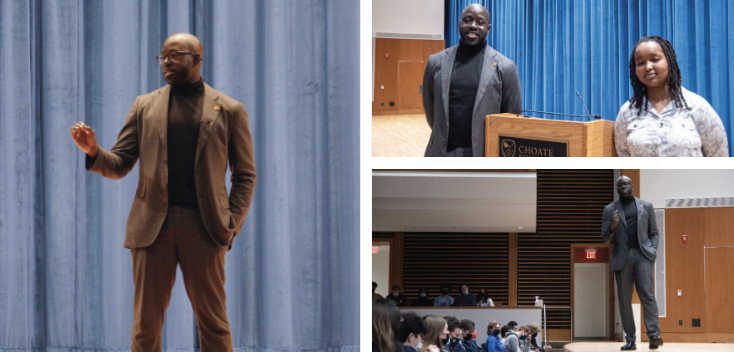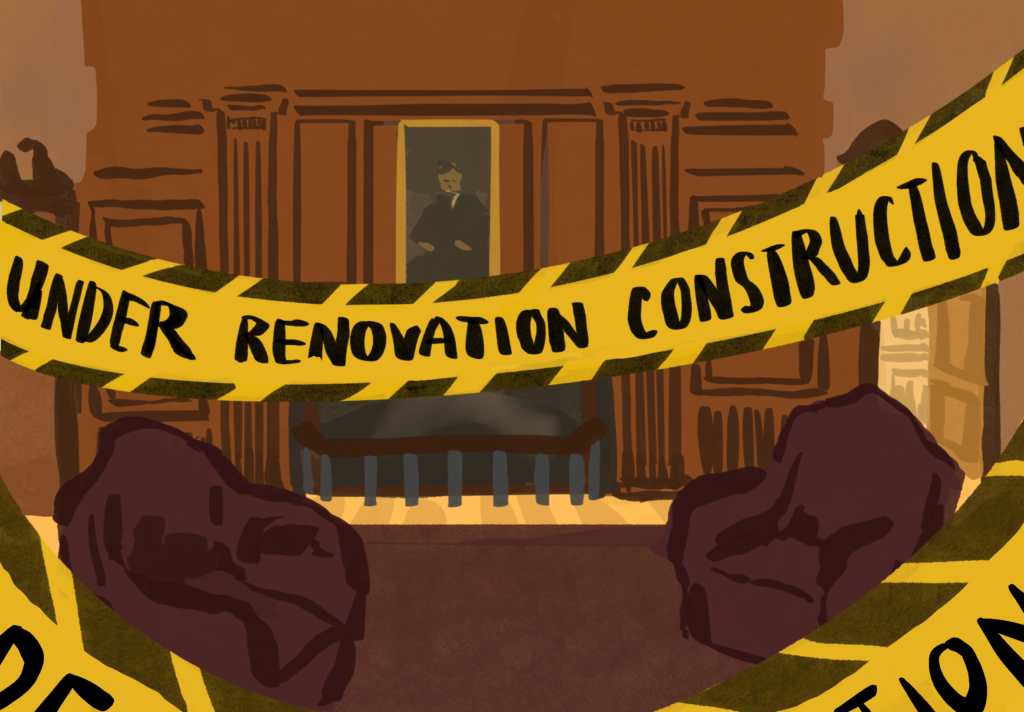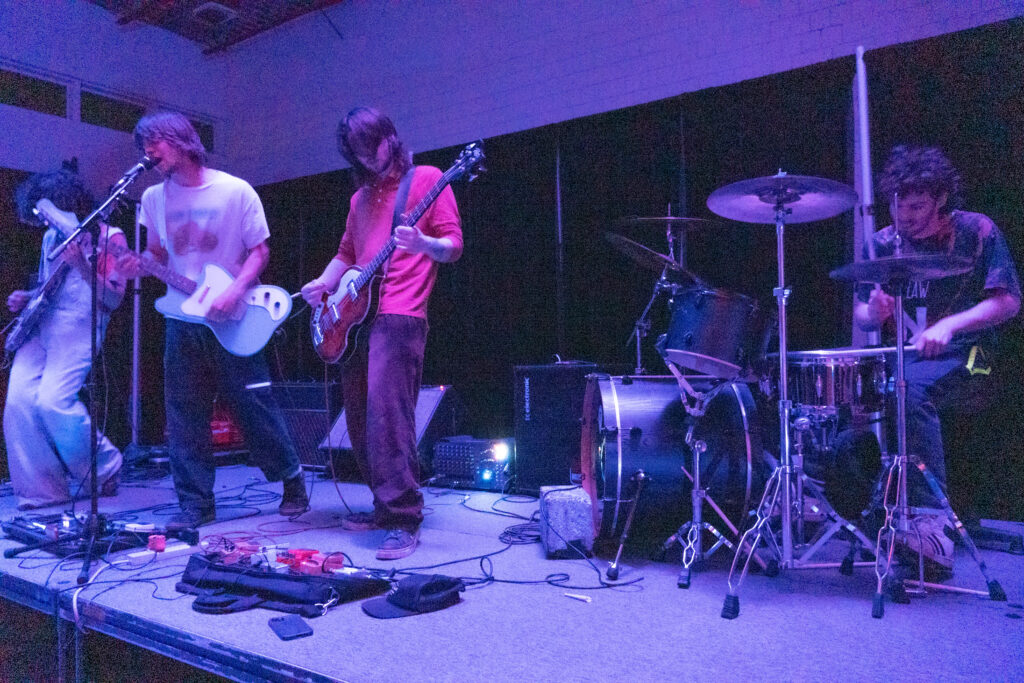
Photos by Tiffany Xiao and Jonas Akins/The Choate News
On Tuesday, February 22, students and faculty involved in history, political science, and economics courses attended the annual Stevenson Lecture. This year’s speaker was Kwame Owusu-Kesse, Chief Executive Officer of the Harlem Children’s Zone (HCZ).
Mr. Owusu-Kesse was originally scheduled to be the speaker for the 2020-2021 school year, but due to Covid-19 restrictions, his lecture was postponed until this winter. According to HPRSS teacher Mr. Jonas Akins, Mr. Owusu-Kesse was selected because “[Department members] were impressed with the variety of services that the HCZ was, and is, providing during the pandemic, and liked the idea of a finding somebody who worked at the intersection of public policy, education, and social services, particularly somebody who has found such success so early in their career.”
The Adlai Stevenson Lecture Series is a longstanding tradition to recognize the legacy and impact of Adlai Stevenson ’18, a Choate alumnus and renowned American lawyer, politician, and diplomat. This year’s Stevenson junior fellow was Elsie Ng’eno ’22. Her ties to public service are rooted through her mother, who has always been a relentless advocate for promoting equity. “My mother uses the phrase, ‘Throw the rope back’, which basically means as you climb the ladder, as you get into higher education and into places of power, you should throw the rope back and you should contribute back to the community that has already given so much to you.”
The evening’s presentation began with Mr. Akins addressing the community and introducing Ng’eno as the junior fellow. She provided the community with background on the life and experiences of Adlai Stevenson, as well as her own analysis of some of his imperfect ideas and actions. “He was definitely a man of his time. He was definitely racist and sexist, but he was very progressive in other ways,” she said in a statement given a few days before the lecture. During her speech she further expanded on this idea and said how “he supported the Brown v. Board of Education decision showing his dedication to ending racial discrimination, yet he was against sending federal troops down to the South to help dismantle Jim Crow. Although this was a result of his efforts to please both sides, it prevented him from achieving more than he did.”
After Ng’eno’s introduction, Mr. Owusu-Kesse took the stage after a brief introduction by Mr. Akins.
Mr. Owusu-Kesse’s address was, in large part, about identifying students’ “why” — what aspects of students’ identities and experiences draw them to do the things they do? Raised by a single mother in deep poverty, Mr. Owusu-Kesse is able to relate to the kids that he touches via the HCZ. However, the other aspect of him, the part that went to Harvard University and Harvard Business School, knows how to mingle and coexist amongst some of the nation’s wealthiest individuals in order to expand on the strategic plan. The broad mission of HCZ is to help the poverty-stricken children and families living in Harlem, New York, including providing free support in the form of parenting workshops and a preschool program.
His lecture focused on the causes he advocates for and the administrative role he must take to do so, make him intrinsically motivated to help end the cycle of poverty in America. “I think I have a super power of being able to authentically tell the story and say, I am a manifestation of what it means to pour into young people, right?” He gave the audience a chance to think, “So I feel deeply, deeply connected to my purpose,” he said during his speech.
After the speech, Ng’eno said, “I learned more about what makes a leader a leader. I learned this particular aspect indirectly — rather I learned it not from what he was saying but what he was doing. He made sure to learn everyone’s name. He engaged the audience so even if we went 15 minutes overtime, everyone was still engaged.”
Students felt inspired and enlightened by Mr. Owusu-Kesse’s speech. Zainab Khoka ’24 said, “Learning about his life and his connection to the HCZ was incredibly inspiring, thought-provoking, and enlightening. Using tested and proven education and business models strategies are exactly what I’d love to learn about.”



